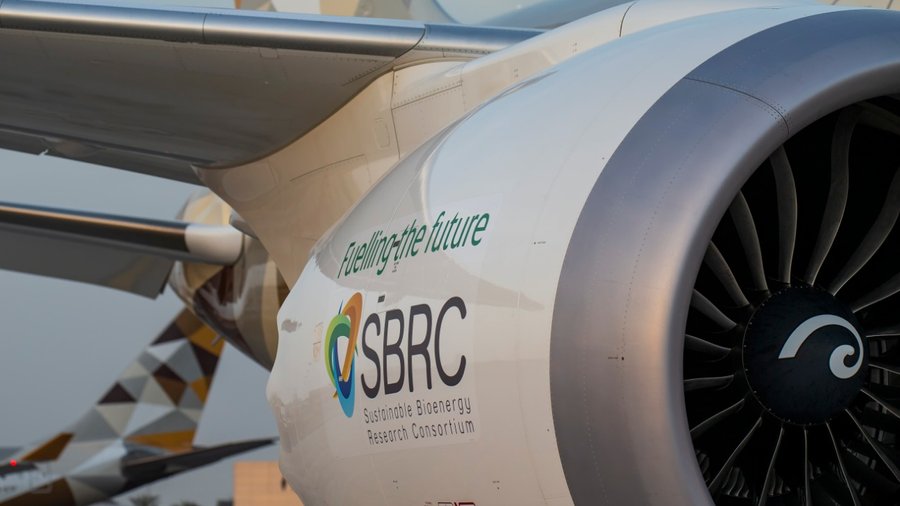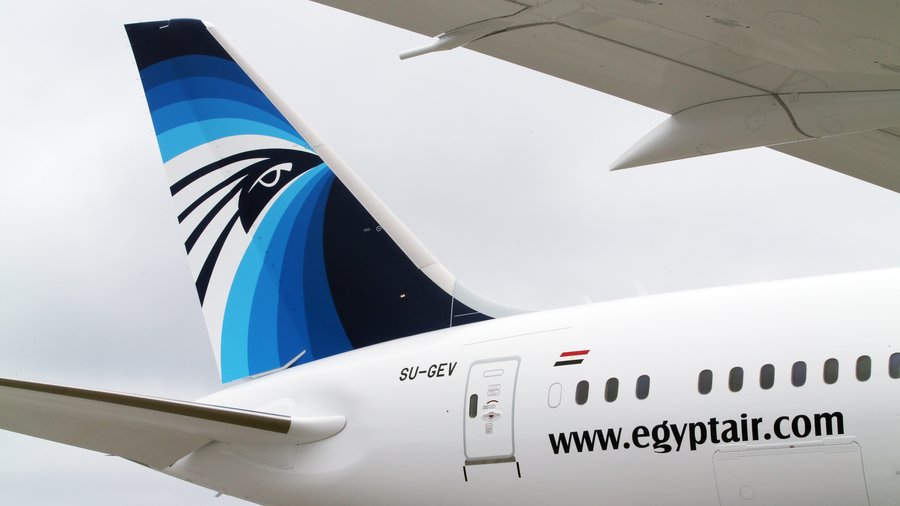The EgyptAir 787-9 Dreamliner that took off from Boeing's Everett delivery center made history Tuesday when it embarked on the longest-ever commercial flight powered by biofuel.
Two EgyptAir captains shared the duties for the 13-hour flight, joined by a group of 50 people from Cairo, including the airline's two vice chairmen.
"It's a special flight because of the biofuel. It's history making and record-breaking," Capt. Abdelhady Mostafa Elshakankiry, who was at the controls, said in a pre-flight interview.
EgyptAir is leasing six Dreamliners long-term from AerCap, a Dublin-based company. Tuesday's delivery to Egypt's flagship airline was the fifth in as many months and the sixth will be handed over in August under a 2017 deal with Aercap, Boeing's biggest 787 Dreamliner customer.
Elshakankiry, also president of EgyptAir's training academy, said the carrier aims to acquire 10 Dreamliners.
The first flight of the new aircraft, bearing a "Clean to Fly" moniker on its fuselage, comes as jet makers and airlines around the world battle a growing chorus of criticism that global air travel causes greater emissions that are suspected of causing global warming.
Against that backdrop, Boeing is positioning its Dreamliner as the widebody jet of choice for airlines to help cut fuel use and emissions by up to 25 percent.
But the battle is far from over. France this month introduced legislation to tax flights to fund other forms of travel.
Criticism of flight is building so much that International Air Transport Association CEO Alexandre de Juniac defended air travel in a recent blog post.
“Flying is freedom. Confining people’s horizons to train distances or boat speeds back-steps on a century of worldwide progress," he wrote. "Relying on virtual meetings to make global connections ignores the feelings and sensations that make us human.”
Sustainable aviation biofuel is a blend: 70 percent traditional aviation biofuel and 30 percent biofuel.
Sheila Remes, vice president of strategy for Boeing Commercial Airplanes, said World Energy of California refines biofuel used for its flights, using California agricultural waste.
"Through these partnerships, we are able to demonstrate the viability of sustainable aviation fuels to the world," Remes said.
Epic Fuels distributes fuel to Boeing's aircraft delivery centers in Everett, Renton, and Charleston, South Carolina.
Dale Smith, Boeing airplanes' regional director of environmental strategy, said when Boeing offered to deliver new aircraft with biofuel blends, two companies stepped up to be the first: Alaska Airlines and EgyptAir.
In January, Etihad Airways flew a jet to Amsterdam with a Boeing Drealiner 787-9 for 6.5 hours using fuel from plants grown in salt water.







A crew from Etihad Airways flew the world's first using aviation biofuel made from plants grown in salt water. The biofuel powered a Boeing Dreamliner 787-9 on a 6.5 hour flight to Amsterdam.










